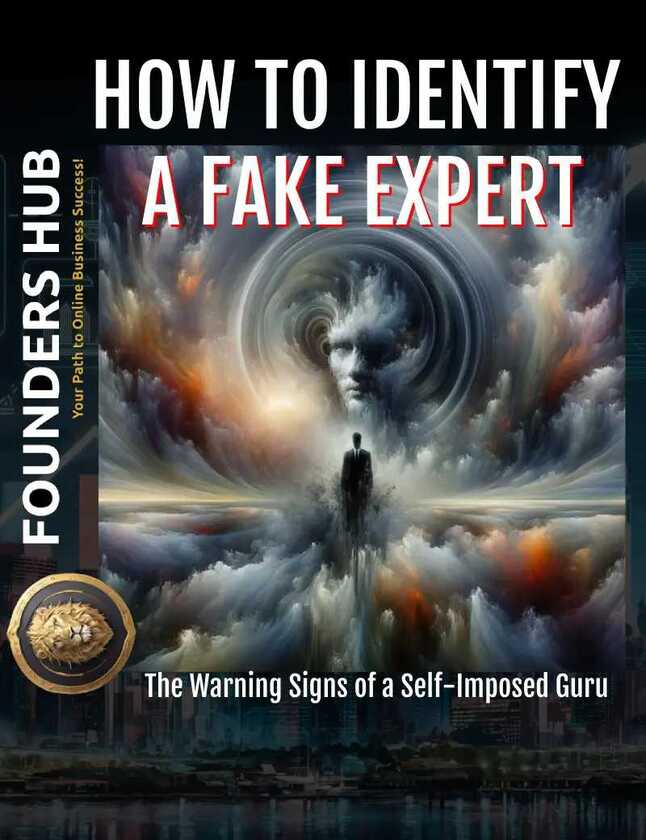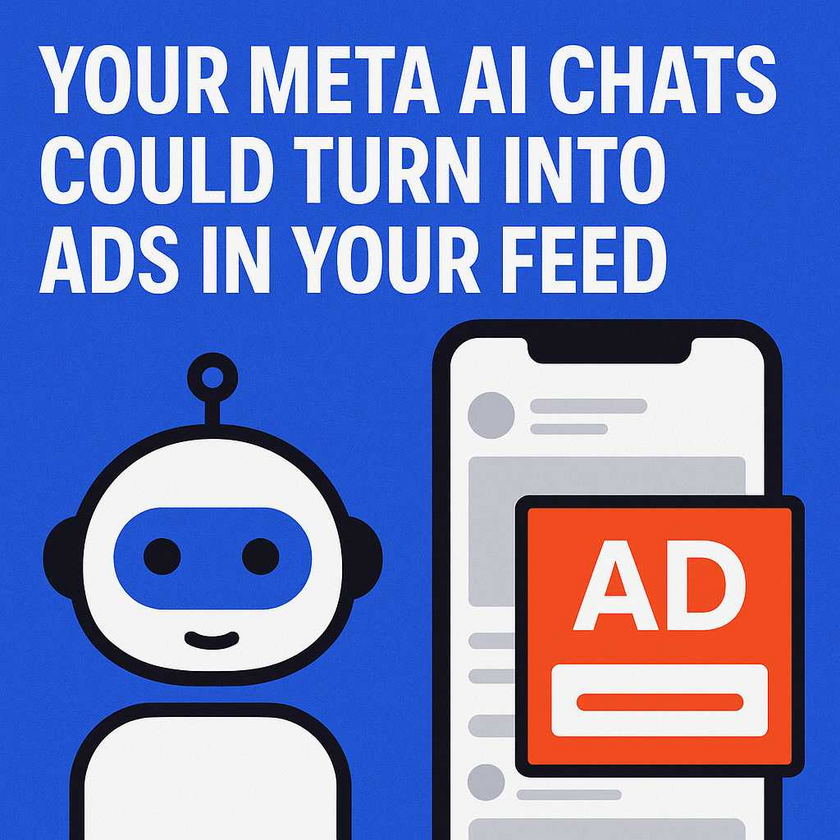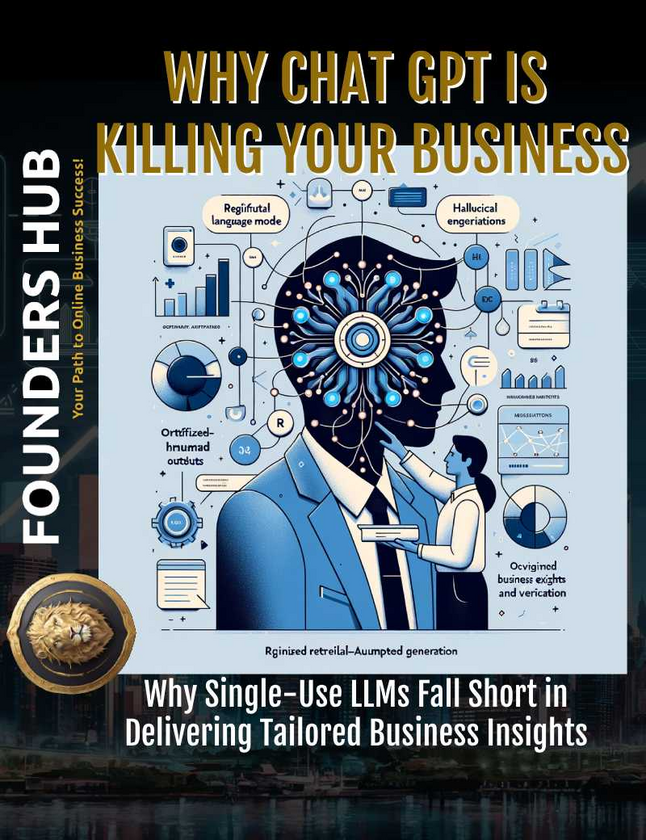In the ever-evolving landscape of personal and professional development, the allure of quick fixes and shortcuts can be tempting. However, it's crucial to exercise caution and discernment when seeking guidance, as the proliferation of self-proclaimed experts, or "self-imposed gurus," has become a concerning trend. These individuals often make grandiose claims, leveraging charisma and persuasive tactics to gain a following, but their advice and methods may lack substance, transparency, and credibility.
Key Takeaway: Identifying the warning signs of a self-imposed guru is essential to avoid falling victim to misinformation, wasted resources, and potential harm. By cultivating a critical eye and understanding the characteristics of genuine expertise, individuals can make informed decisions and seek guidance from credible sources.
In this comprehensive guide, we'll delve into the telltale signs of a self-imposed guru and explore the qualities that distinguish genuine experts from those who merely masquerade as authorities. By arming ourselves with knowledge and discernment, we can navigate the complex world of personal and professional development with confidence and authenticity.
Introduction
A self-imposed guru is an individual who positions themselves as an authority figure or expert in a particular field, often without the necessary credentials, experience, or verifiable track record to substantiate their claims. These individuals may rely on charisma, persuasive language, and a veneer of confidence to attract followers and promote their ideas, products, or services.
It's important to distinguish self-imposed gurus from genuine experts who have dedicated years of study, research, and practical experience to their respective fields. True experts are often humble, transparent about their limitations, and committed to continuous learning and growth. They prioritize evidence-based approaches and are willing to acknowledge areas of uncertainty or knowledge gaps.
Identifying fake experts is crucial because the misinformation and potentially harmful advice they propagate can have far-reaching consequences. Individuals seeking guidance in areas such as personal development, entrepreneurship, or health and wellness may be misled, wasting valuable time, resources, and even compromising their well-being. Furthermore, in professional contexts, relying on the counsel of a self-imposed guru can lead to poor decision-making, reputational damage, and financial losses.
Warning Signs
While self-imposed gurus may initially appear convincing, there are several telltale signs that can help discern their true nature. By being aware of these red flags, individuals can exercise caution and make informed decisions when seeking guidance or expertise.
Exaggerated Claims
One of the most prominent warning signs of a self-imposed guru is the tendency to make exaggerated claims and grand promises. These individuals often tout unrealistic success stories, boasting about their ability to help others achieve extraordinary results with minimal effort or time investment.
For example, a self-proclaimed "wealth guru" might claim, "Earn six figures in six months with my foolproof method!" or a "relationship expert" might promise, "Transform your love life in just 30 days with my revolutionary techniques!" Such grandiose claims should raise immediate skepticism, as genuine experts understand the complexities and nuances of their fields and are unlikely to make such sweeping guarantees.
Additionally, self-imposed gurus may assure quick results and emphasize the simplicity of achieving complex goals. They might downplay the effort, dedication, and time required for personal or professional growth, painting an unrealistic picture of effortless success.
Fake Credentials
Another red flag to watch out for is the presence of unverifiable achievements or dubious credentials. Self-imposed gurus may attempt to bolster their credibility by claiming impressive accomplishments or affiliations, but upon closer inspection, these claims often lack transparency or substantiation.
For instance, they might boast about being "award-winning" or "internationally recognized" without providing clear details or evidence of such accolades. Alternatively, they may use vague or non-specific credentials, such as "certified expert", "master practitioner," or "internet Insider" without clarifying the issuing body or the criteria for obtaining such titles.
Genuine experts, on the other hand, are typically transparent about their educational backgrounds, professional experiences, and credentials. They can provide verifiable information about their qualifications and are open to scrutiny regarding their achievements.
Furthermore, self-imposed gurus may rely on dubious endorsements or testimonials from non-reputable sources or even fabricated individuals. They might also attempt to associate themselves with reputable institutions or individuals in a misleading manner, leveraging these connections to enhance their perceived credibility.
Lack of Transparency
Transparency is a hallmark of genuine expertise, but self-imposed gurus often shroud their backgrounds and business practices in secrecy. They may be evasive about their personal histories, professional experiences, and the details of their ventures or products.
For example, a self-proclaimed "business guru" might be reluctant to provide clear documentation or proof of their past successes, instead relying on vague anecdotes or unverifiable claims. They may also be opaque about their business models, sources of income, or the specifics of the services or products they offer.
This lack of transparency should raise red flags, as genuine experts are typically open and forthcoming about their backgrounds, methodologies, and the sources of their knowledge and expertise.
Overemphasis on Networking
While networking and building professional relationships are valuable endeavors, self-imposed gurus often place an excessive emphasis on these activities, prioritizing self-promotion over delivering substantive value or actionable advice.
These individuals may heavily rely on social media platforms to cultivate a personal brand and amass a large following, but their content may lack depth or practical insights. Instead, they may focus on generating buzz, leveraging influencer culture, and relying on popularity metrics (such as likes, shares, and follower counts) as a measure of their expertise.
Genuine experts, on the other hand, tend to prioritize the dissemination of knowledge and the sharing of practical, evidence-based strategies over mere self-promotion. While they may engage in networking and maintain an online presence, their primary focus is on delivering value and contributing to their field through research, teaching, or practical application.
Inability to Explain
A key characteristic of genuine expertise is the ability to clearly explain and articulate the reasoning behind one's beliefs, methodologies, or recommendations. Self-imposed gurus, however, often struggle to provide coherent and detailed explanations, relying instead on jargon, vague language, and deflection tactics.
When pressed for specifics or asked to clarify their advice, self-imposed gurus may respond with convoluted or confusing language, overloading their communication with complex terminology in an attempt to obfuscate their lack of substantive knowledge. They may also avoid providing practical examples or step-by-step guidance, preferring to keep their methods shrouded in mystery.
In contrast, true experts are adept at breaking down complex concepts into understandable terms and can provide clear, logical explanations for their approaches. They are willing to share practical examples and case studies to illustrate their points and offer actionable steps for implementation.
Overconfidence
Self-imposed gurus often exhibit an air of overconfidence, presenting themselves as infallible authorities on their chosen subjects. They may portray an unwavering sense of certainty, dismissing or invalidating any criticism or differing opinions.
This infallibility complex can manifest in various ways, such as a reluctance to acknowledge mistakes or limitations, a defensive or aggressive response to feedback, or a tendency to belittle or discredit those who challenge their views.
Genuine experts, on the other hand, are typically more humble and open to learning. They recognize that knowledge is ever-evolving and that there is always room for growth and improvement. While confident in their expertise, they are willing to admit when they are uncertain or still learning, and they actively seek out feedback and diverse perspectives to deepen their understanding.
Insensitivity to Cultural Differences
In an increasingly globalized world, cultural awareness and sensitivity are crucial for effective communication and the dissemination of knowledge. However, self-imposed gurus often exhibit a lack of cultural awareness, applying a one-size-fits-all approach to their teachings or advice.
These individuals may overlook the nuances of regional or cultural differences, failing to consider how their methods or recommendations may be perceived or received in diverse contexts. They may demonstrate insensitivity to cultural norms, values, and communication styles, potentially causing offense or misunderstanding.
True experts, on the other hand, recognize the importance of cultural competence and strive to understand and adapt to the unique perspectives and experiences of their audiences. They are mindful of regional specificities and local nuances, tailoring their approaches and communication styles to resonate with diverse communities effectively.
Characteristics of Genuine Experts
While identifying the warning signs of self-imposed gurus is crucial, it's equally important to recognize the qualities that distinguish genuine experts. By understanding these characteristics, individuals can make informed decisions when seeking guidance and expertise.
Deep Factual Knowledge
One of the hallmarks of genuine expertise is a deep, nuanced understanding of a particular field or discipline. True experts possess a wealth of factual knowledge acquired through years of study, research, and practical experience.
They can demonstrate a verifiable track record of accomplishments and are able to cite credible sources, research studies, and evidence to support their claims and methodologies. Genuine experts are well-versed in the latest developments and trends within their areas of expertise and actively engage with the broader community of scholars and practitioners.
In contrast to self-imposed gurus who may rely on anecdotal evidence or unsubstantiated claims, genuine experts prioritize evidence-based information and are transparent about the foundations of their knowledge.
Communication of Confidence Levels
While self-imposed gurus often project an air of unwavering certainty, genuine experts are comfortable acknowledging the limits of their knowledge and expertise. They are transparent about areas where they are less confident or still learning, recognizing that no individual can possess complete mastery over a complex field.
True experts are willing to admit uncertainty and are open about the boundaries of their expertise. They set realistic expectations and timelines for success, avoiding overpromising or underdelivering on their claims.
This willingness to communicate confidence levels and acknowledge knowledge gaps is a hallmark of genuine expertise, as it demonstrates humility, intellectual honesty, and a commitment to continuous learning and growth.
Use of Multiple Lenses
Genuine experts understand that complex issues and challenges often require a multidisciplinary approach, drawing upon diverse perspectives and schools of thought. They possess a holistic viewpoint, recognizing that no single discipline or methodology can provide a complete understanding of a given subject.
True experts are adept at integrating various lenses and frameworks, synthesizing insights from different domains to develop nuanced and balanced approaches. They are open to exploring alternative viewpoints and are willing to challenge their own assumptions and biases.
In contrast, self-imposed gurus may promote singular or extreme approaches, presenting their methods as the only viable solution or dismissing alternative perspectives as invalid or inferior.
Clear Explanation of Reasons
A hallmark of genuine expertise is the ability to clearly articulate the reasoning behind one's beliefs, methodologies, or recommendations. True experts can provide logical and coherent explanations for their approaches, grounded in research, evidence, and practical experience.
They are skilled at breaking down complex concepts into understandable terms and can provide practical examples and case studies to illustrate their points. Genuine experts are transparent about their thought processes and can walk others through the rationale behind their advice or strategies, step-by-step.
In contrast, self-imposed gurus may struggle to provide clear and logical explanations, often relying on vague language, jargon, or deflection tactics when pressed for specifics.
Track Record
Ultimately, a key differentiator between genuine experts and self-imposed gurus is the presence of a verifiable track record. True experts can point to a history of successful projects, satisfied clients, or meaningful contributions to their field.
They are often willing to share positive testimonials from credible sources, showcasing the impact of their work and the value they have provided to others. Additionally, genuine experts demonstrate a commitment to ongoing learning and professional development, actively engaging with the latest research, trends, and best practices within their areas of expertise.
Self-imposed gurus, on the other hand, may struggle to provide concrete examples of their successes or may rely on fabricated or dubious testimonials to bolster their credibility.
Conclusion
In the ever-evolving landscape of personal and professional development, discerning genuine expertise from self-imposed gurus is a critical skill. By being aware of the warning signs, such as exaggerated claims, fake credentials, lack of transparency, overemphasis on networking, inability to explain, overconfidence, and insensitivity to cultural differences, individuals can exercise caution and make informed decisions when seeking guidance.
Conversely, recognizing the characteristics of true experts, including deep factual knowledge, communication of confidence levels, the use of multiple lenses, clear explanation of reasons, and a verifiable track record, can help individuals identify credible sources of information and support.
Ultimately, cultivating a mindset of critical thinking and due diligence is essential when navigating the complex world of personal and professional development. By prioritizing transparency, evidence-based approaches, and a commitment to continuous learning, individuals can avoid falling prey to the allure of self-imposed gurus and instead seek guidance from genuine experts who can provide valuable insights and actionable strategies for growth and success.
Remember, the path to personal and professional development is not a quick fix or a shortcut; it requires dedication, effort, and a willingness to embrace the nuances and complexities of the journey. By discerning genuine expertise from self-imposed gurus, individuals can embark on a transformative journey guided by credible sources, empowering themselves with knowledge and skills that truly resonate with their goals and values.
If you'd like to work with a true professional and not someone that sees themselves as, or promotes themselves as, a GURU... then reach out to us, and yes we can back up with evidence any claims we make on the training, knowledge and application programs we run :-)



















